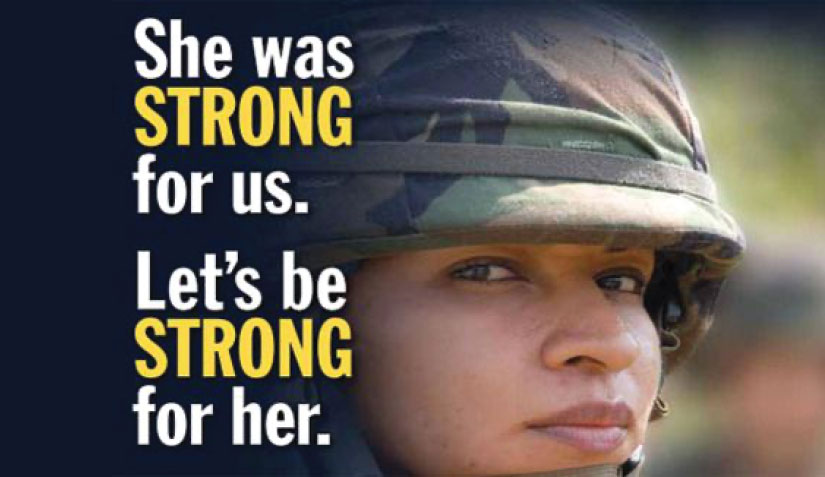Article by Lishamarie Hunter
Women comprise the fastest-growing segment of the homeless Veteran population. The 2017 Annual Homeless Assessment Report to Congress, the U.S. Department of Housing and Urban Development (HUD) estimated that just over 40,000 veterans were homeless on a single night in January of that year. Of those, about 9 percent were women, out of a population of more than 2 million female Veterans.
From 2016 to 2017, the number of homeless female Vets increased by 7 percent, compared with 1 percent for their male counterparts (2021). A side by side comparison of female and male veteran populations reveals that both groups of veterans reside in the greatest number in California, Texas and Florida, however they differ in concentrations.
Female veterans have the highest concentration in Texas; male veterans, in California. As the unemployment number rise due to the pandemic the homelessness is only growing, and more veterans being affected. That figure, according to the center, is projected to rise by about 9% to nearly 40,000 by 2025 (2021).
Many homeless female veterans were victims of military sexual trauma and feel resentment toward the military and the VA. As a result, many do not identify themselves as being veterans. They tend to stay away from the organizations wishing to help them because they feel they were betrayed by that organization in the past. According to the VA’s National Center for PTSD, data from the VA’s military sexual trauma screening program shows that about one in four women and 1 in 100 men say that they experienced sexual trauma or assault while in the military.
Homeless female veterans don’t fit the stereotype of a homeless person living on the streets. Female homeless veterans often have children and tend to stay with family or friends temporarily.
Some reasons for the underreporting of female veterans and lack of assistance for their situation are listed below:
- A large percentage of female veterans facing homelessness find ways to live with family or friends, “couch surfing” for extended periods of time.
- Many feel unsafe sleeping on the streets or even in shelters.
- Many homeless facilities focus on the larger population of male homeless veterans, who also happen to be more likely to reach out and utilize VA services than their female counterparts.
- Many female veterans with children are worried that by accessing services or asking for help against homelessness, their children will be removed from their care.
- Others learn that many shelters have limits on the number of children that can accompany their mother.
The majority of programs throughout the nation and in particular the VA system addresses the male veteran homelessness. There are resources for homeless veterans both male and female. VA understands that many women Veterans face challenges when returning to civilian life, including raising children on their own or dealing with the aftereffects of military sexual trauma.
Without intervention, these and other issues can put women Veterans at greater risk of homelessness. VA also strives to address the individualized needs of women throughout its specialized programs for homeless Veterans. Every VA Medical Center and regional benefits office also has a dedicated advocate to make sure women Veterans get the health care and benefits they’ve earned through service (va.gov)
Another organization that provides assistance with homeless female veterans is Final Salute INC. This organizations mission is simple to provide safe and suitable homes to homeless female veterans. They do this with their program H.O.M.E. The H.O.M.E Program provides transitional housing, on-site case management, food, clothing, transportation, child care subsidy/assistance, employment support and other essential supportive services to homeless female Veterans and their children.
The H.O.M.E Program focuses on integrating women Veterans back into their local communities and providing, safe and suitable residential areas to choose from. The H.O.M.E Program is a collaboration with a variety of resource partners that includes targeted supportive services to assist women Veterans in reaching their goals. The organization is based in the DC Metro Area, the programs have assisted women Veterans and children in over 30 States and Territories.
The organization assist with permanent placement once Veterans are ready to transition from our residential facilities. Who is eligible to apply for benefits from the H.O.M.E program. Veteran must have an “honorable or under honorable conditions” discharge; verified by DD-214*. (*Requires completion of initial service obligation (ISO), unless medically discharged). The veteran must also be willing to adhere to terms of the Resident Agreement and 2-Year Plan for Independence. Phone number is 703-224-8845 (2019).
The first step in eliminating the homelessness is to acknowledging the need for assistance. The local Vet Centers, VFW and American Legions can provide names and numbers of programs locally that provide emergency assistance. Local homeless assistance is available for veterans through your nearest HUD office. Call the HUDVET National Hotline at (877) 424-3838 FREE for around the clock assistance, or view the resources for homeless veterans on the HUD Exchange. No Veteran regardless of their gender should be homeless.
References:
- Absher, Jim. Female Veterans Are Fastest Growing Segment of Homeless Veteran Population. military.com, March 28, 2018, Retrieved February 23, 2021.
- Boothe, Casura, Steere, Suarez, The Numbers Don’t Add Up: Departments of Veterans Affairs and Housing and Urban Development Severely Underestimate Number of Homeless Women Veterans. Released: August 24, 2016 Revised: December 1, 2017 Revised: July 2, 2019, Retrieved February 23, 2021.
- Angela M. Rogers, https://news.psu.edu/story/598769/2019/11/18/research/homeless-female- veterans-out-sight-out-mind, November 18, 2019, Retrieved February 24, 2021.
- Veteran’s Aid Org. The Invisible Homeless: Female Veterans Often Go Uncounted, February 8, 2018. Retrieved February 23, 2021.
Read more articles from VOM Magazine here: https://www.veteransoutreachministries.org/vom-magazine/



